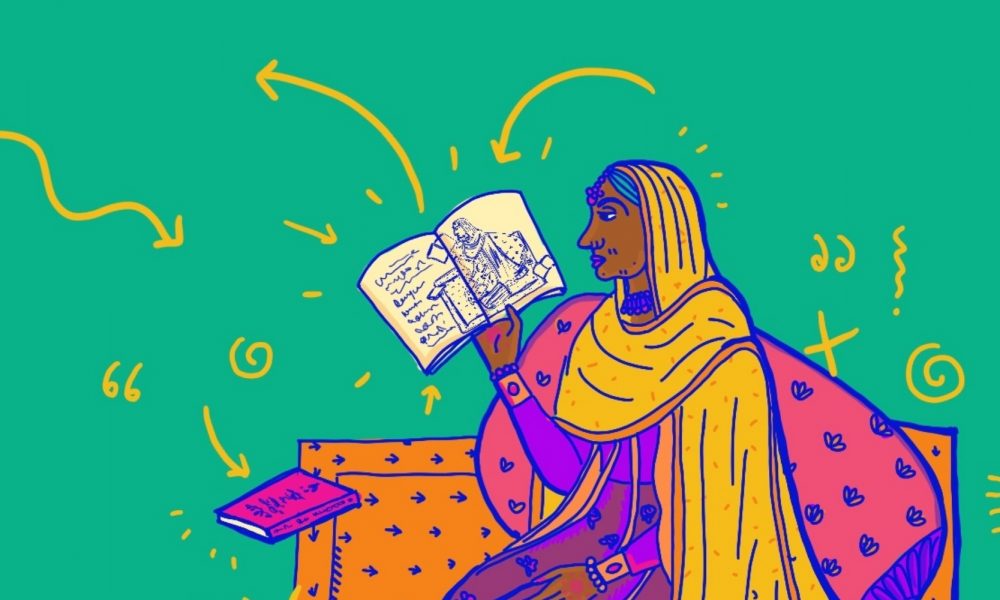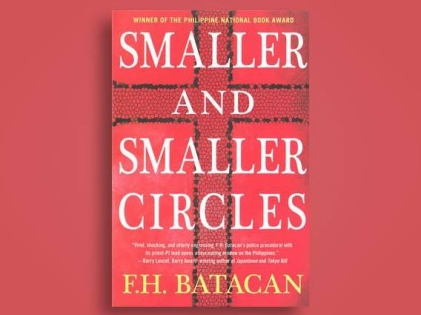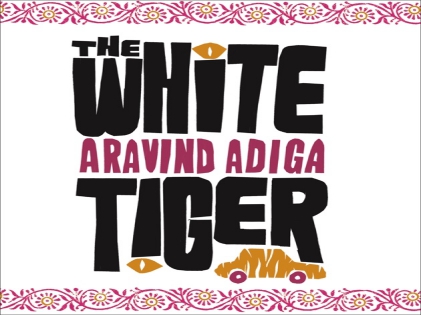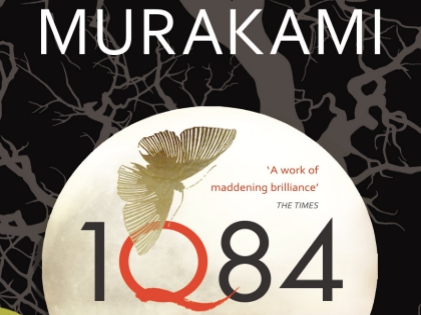
Five Books By Asian Authors That You Should Read!

From the surreal and evocative descriptions of Haruki Murakami’s plethora of novels to the profound and disturbing views presented in Han Kang’s fiction, Asian literature is a reflection of many things unique to this continent — rich and troubled history, the cultural dichotomy of colonized people, and the diversities of the modern era blending with the complexities of traditions and beliefs, among others. While Asian authors may not be given the spotlight they truly deserve, they continue to churn out thought-provoking literature that everyone should pick up at least once in their lives.
So, forget Harper Lee, J.D. Salinger, and Ernest Hemingway for now and dive into the rich, scintillating prose of Asian literature. Here are five great reads by some of Asia’s best:
Smaller and Smaller Circles by F.H. Batacan
 Known as the first Filipino crime novel, Smaller and Smaller Circles revolves around the murders of young boys in the poverty-ridden town of Payatas, Manila. Two Jesuit priests, Father Gus Saenz and Father Jerome Lucero, who also specialize in forensic work, investigate these murders with the help of a reporter named Joanna Bonifacio. Batacan’s award-winning novel also makes social commentaries on the power of the elite, the influence of the Church, and the unreliability of the justice system of the Philippines and local government offices such as the National Bureau of Investigation. Published in 2002, Smaller and Smaller Circles is a fast-paced crime thriller — one that will keep you on the edge of your seat as Fathers Saenz and Lucero solve the case and reveal the identity of the murderer.
Known as the first Filipino crime novel, Smaller and Smaller Circles revolves around the murders of young boys in the poverty-ridden town of Payatas, Manila. Two Jesuit priests, Father Gus Saenz and Father Jerome Lucero, who also specialize in forensic work, investigate these murders with the help of a reporter named Joanna Bonifacio. Batacan’s award-winning novel also makes social commentaries on the power of the elite, the influence of the Church, and the unreliability of the justice system of the Philippines and local government offices such as the National Bureau of Investigation. Published in 2002, Smaller and Smaller Circles is a fast-paced crime thriller — one that will keep you on the edge of your seat as Fathers Saenz and Lucero solve the case and reveal the identity of the murderer.
The Vegetarian by Han Kang
When The Vegetarian was first released in South Korea in 2007, it received a lukewarm response from readers, with many describing it as “very extreme and bizarre”. It was then translated to English by Deborah Smith and published in the United Kingdom in January 2015 and in the USA a year and a month later. Han Kang found herself basking in the international limelight after The Vegetarian won the Man Booker Prize in May 2016. Since then, it has been translated to at least thirteen languages.
The Vegetarian follows the story of Yeong-hye who one day, decides to stop eating meat after recurring nightmares of animal slaughter. Told in three parts with three different points of view, this novel explores sanity versus madness, violence versus innocence, and the many layers of humanity with a reflection of Korean culture and patriarchy.
The White Tiger by Aravind Adiga
 Balram Halwai is the main protagonist of this profound novel by Indian author Aravind Adiga. The White Tiger tells the story of Halwai who works as a driver for an affluent family in modern India. It is an exploration of the conflict between old and new India seen through the eyes of Halwai. A Man Booker Prize winner in 2008, The White Tiger deals with many themes like religion, the caste system, poverty, immorality, and corruption in India. It definitely deserves a spot on your bookshelf!
Balram Halwai is the main protagonist of this profound novel by Indian author Aravind Adiga. The White Tiger tells the story of Halwai who works as a driver for an affluent family in modern India. It is an exploration of the conflict between old and new India seen through the eyes of Halwai. A Man Booker Prize winner in 2008, The White Tiger deals with many themes like religion, the caste system, poverty, immorality, and corruption in India. It definitely deserves a spot on your bookshelf!
The Boat to Redemption by Su Tong
Su Tong is one of China’s most well-known authors, and his talent for writing is reflected in The Boat to Redemption. Set in 20th century China, it is a simple yet hard-hitting story on the downfall and struggles of a man and his son after they are shunned by the public and live a secluded life. The story centers on identity as its main theme, more specifically how the ever-changing world and our reality drive us towards self-discovery and the challenges that come with it.
1Q84 by Haruki Murakami
 Of course, how can we forget about one of Asia’s literary giants? Japanese author Haruki Murakami paints a vivid and surrealist picture in 1Q84, a humongous tome that narrates the story of Aomame and Tengo. It is their journey into a wildly imaginative world that can only be created by Murakami. Within its pages, this book is a critique of modern society, and some critics say that it gives an insight into Murakami’s belief that religion is a negative force, considering that religious and sacred themes are prevalent in the story and are shown as concepts that exist outside reality and everyday life.
Of course, how can we forget about one of Asia’s literary giants? Japanese author Haruki Murakami paints a vivid and surrealist picture in 1Q84, a humongous tome that narrates the story of Aomame and Tengo. It is their journey into a wildly imaginative world that can only be created by Murakami. Within its pages, this book is a critique of modern society, and some critics say that it gives an insight into Murakami’s belief that religion is a negative force, considering that religious and sacred themes are prevalent in the story and are shown as concepts that exist outside reality and everyday life.
If you have been wanting to explore Asian literature, start with these books — or whichever tickles your fancy. Happy reading!
More in Entertainment
-
`
Why Mortgage Demand Is Crashing as Interest Rates Skyrocket
Imagine having a favorite local ice cream shop that suddenly jacked up its prices by 50%. You would probably think twice...
November 18, 2023 -
`
Santo Spirits | Sammy Hagar and Guy Fieri’s Joint Venture
In the world of entrepreneurial partnerships, some unions are destined for greatness. The unexpected alliance between Sammy Hagar, the iconic Van...
November 12, 2023 -
`
Branded Content: A Genuine Way to Connect With Your Audience
Have you ever binge-watched a series on Netflix, only to later realize that the beverage everyone’s sipping on is that brand...
November 3, 2023 -
`
Southwest Airlines Tackles Passenger and Labor Challenges
Southwest Airlines, a prominent player in the aviation industry, has found itself at a crossroads, facing a combination of passenger dissatisfaction...
October 28, 2023 -
`
Everything You Need to Know About Blended Interest Rates
Hou ever blended a smoothie and thought, “How on Earth do my strawberries, spinach, and protein powder come together to taste...
October 17, 2023 -
`
The Osbournes ‘Relaunch’ Podcast After 5 Year Break
If you were glued to your TV in the early 2000s, there is no way you missed the hilarious, raucous, and...
October 10, 2023 -
`
Tesla in China: Back-to-Back Price Drops, But No Sales Jump?
As temperatures soared in the summer of 2023, Tesla seemed to be heating things up in the Chinese market too. A...
October 6, 2023 -
`
Navigating Red Flags in the Workplace
In the journey of our careers, it’s not uncommon to encounter red flags in our jobs that signal potential issues or...
September 30, 2023 -
`
Top 6 Best Housing Options for Older Adults
As we grow old, our physical and mental health needs change. In turn, this means that we require more assistance from...
September 21, 2023















You must be logged in to post a comment Login